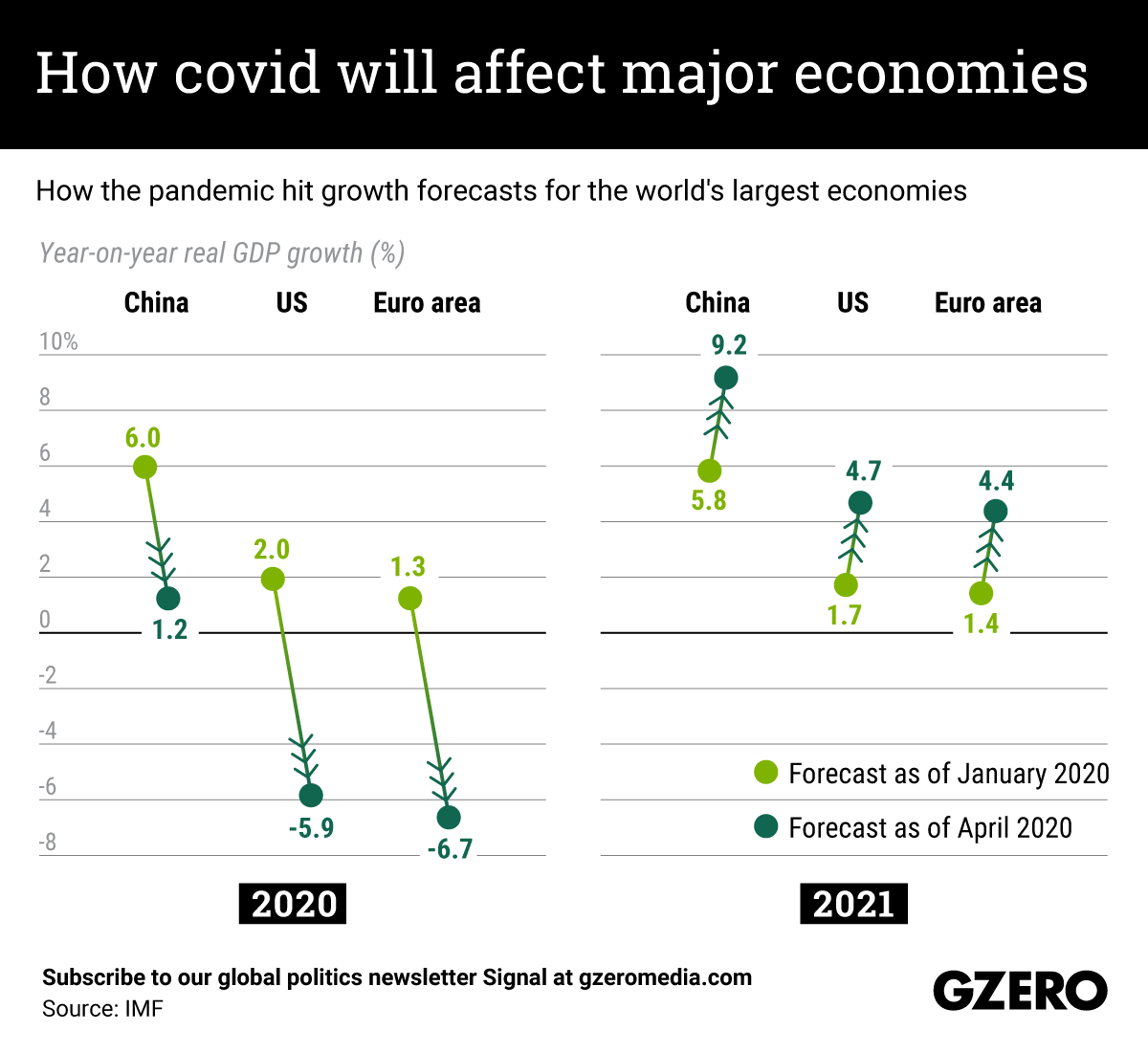The Graphic Truth: How COVID-19 will affect major economies
June 14, 2020
Lockdowns and social distancing restrictions have brought much of the global economy to a halt over the past few months, causing unprecedented levels of joblessness and throwing international commerce into disarray.
As the virus continued to spread throughout the first quarter of the year (there are now cases in at least 188 countries and territories) the IMF updated its original growth forecast for 2020, and the predictions are grim. The world's largest economies – China, the US and the Euro area – are set to experience massive year-on-year contraction. But there's a silver lining: The IMF says that there are signs of a promising economic recovery for these economic regions in 2021. Here's a look at the numbers.
